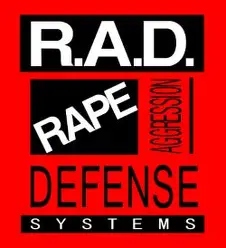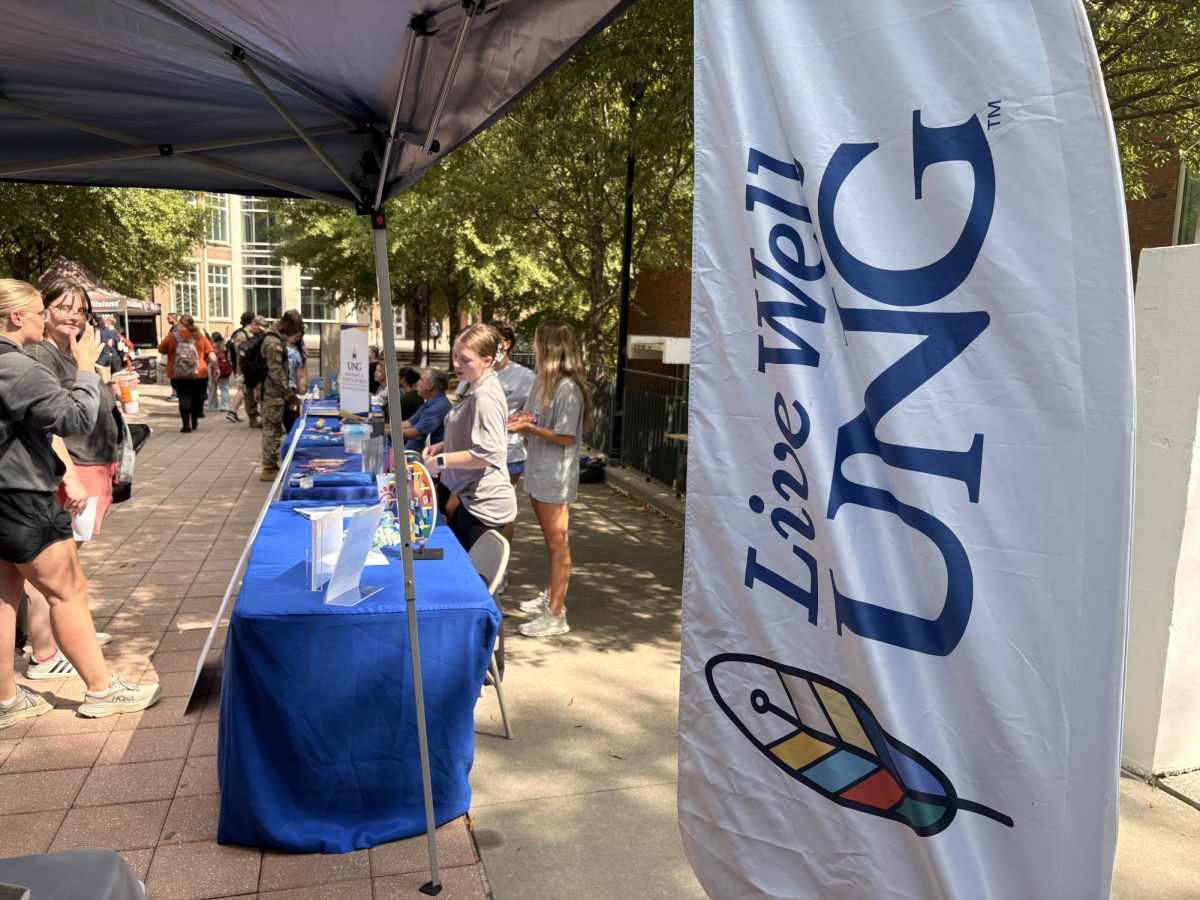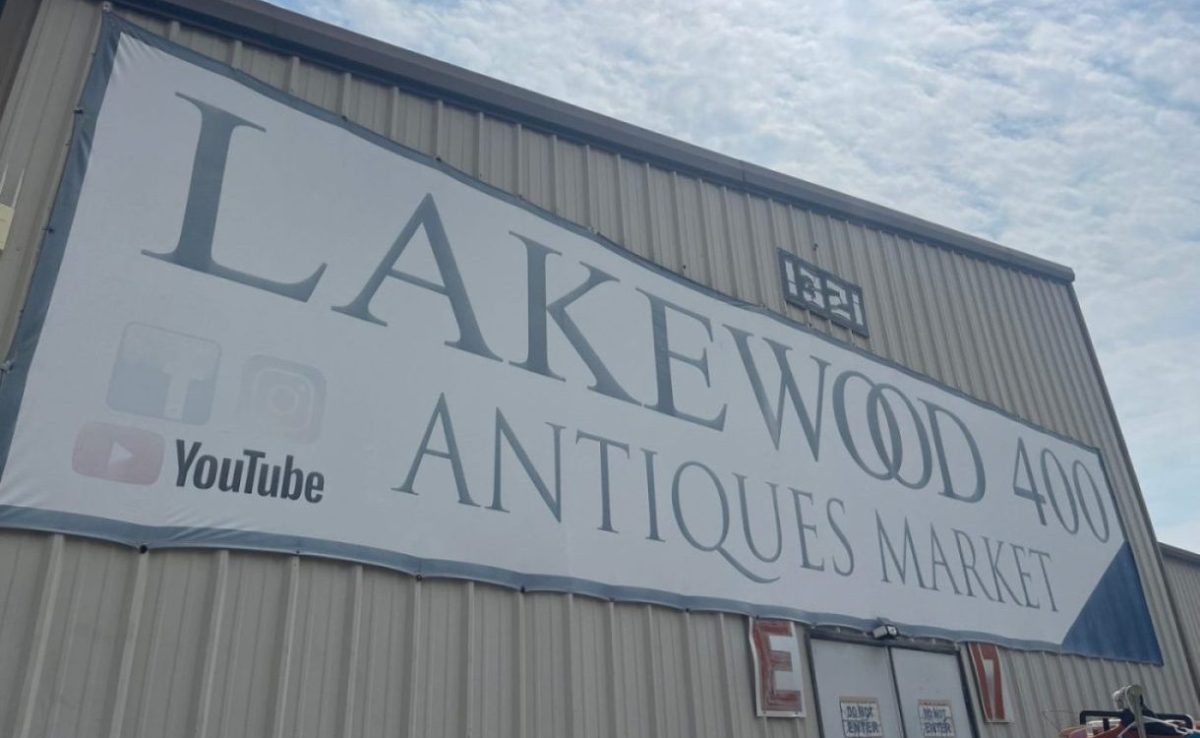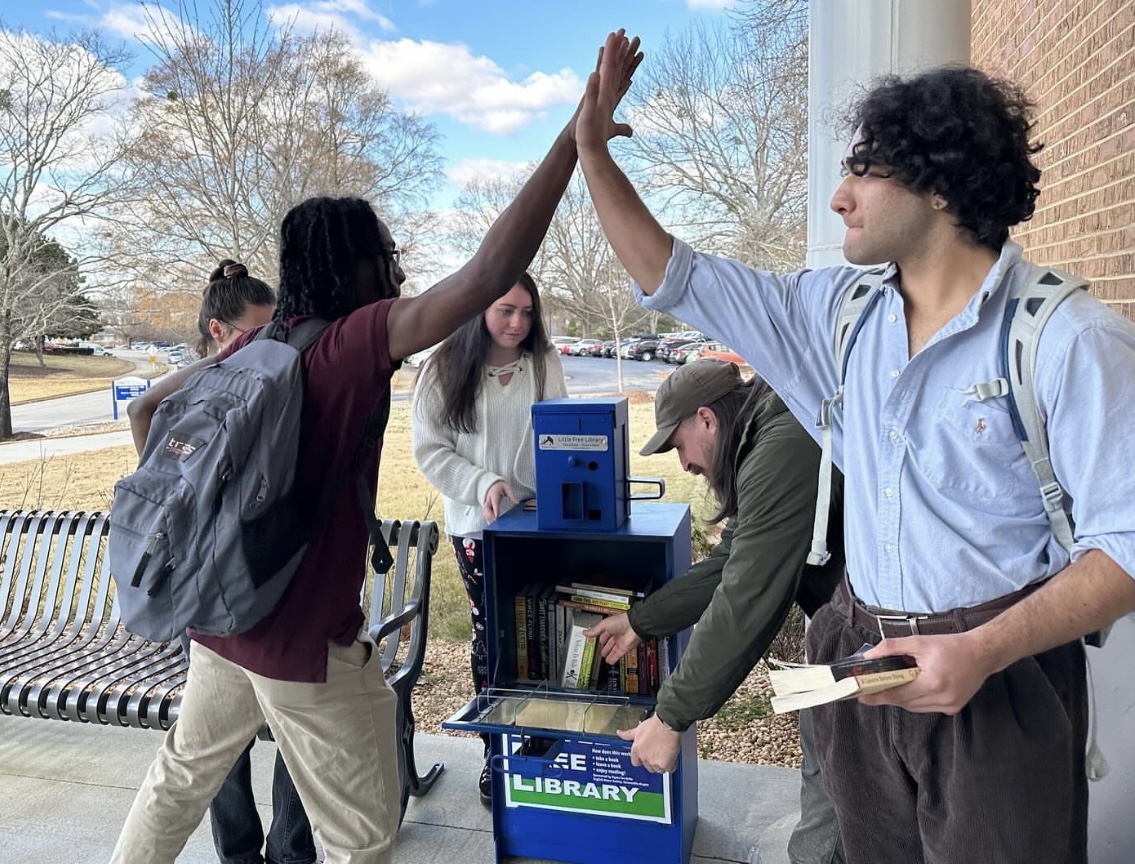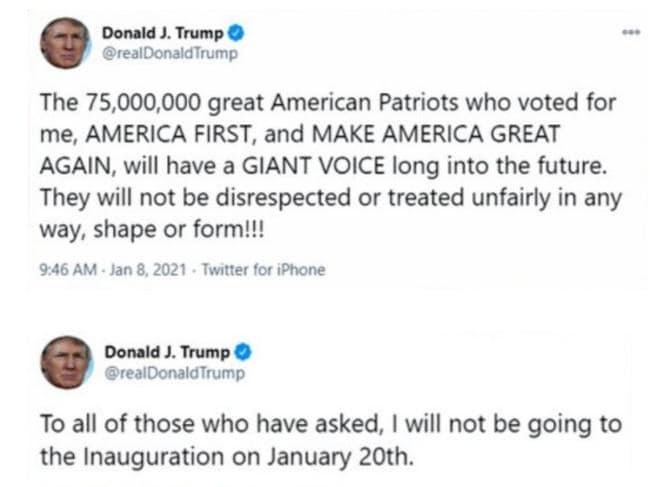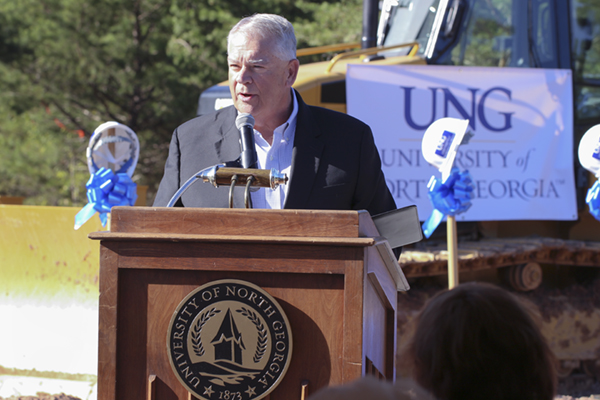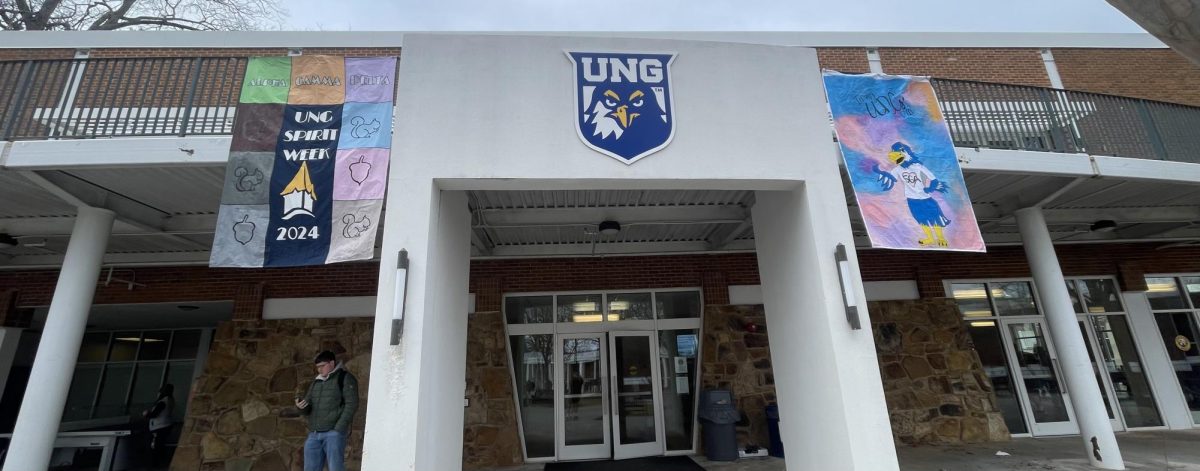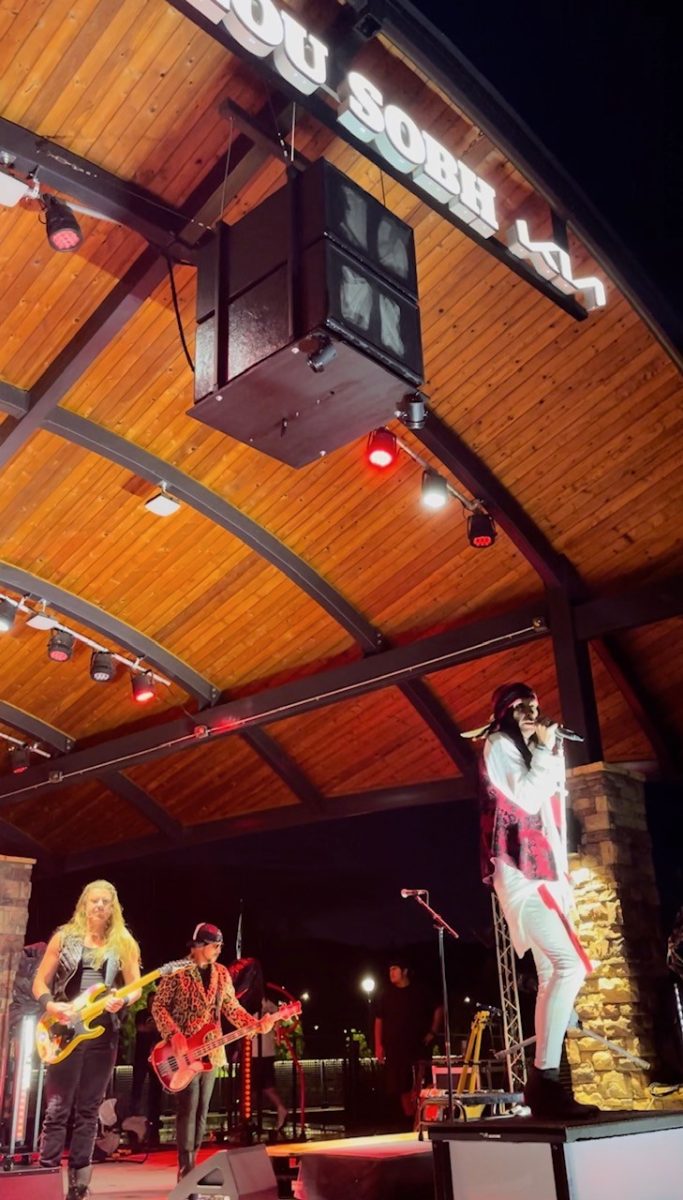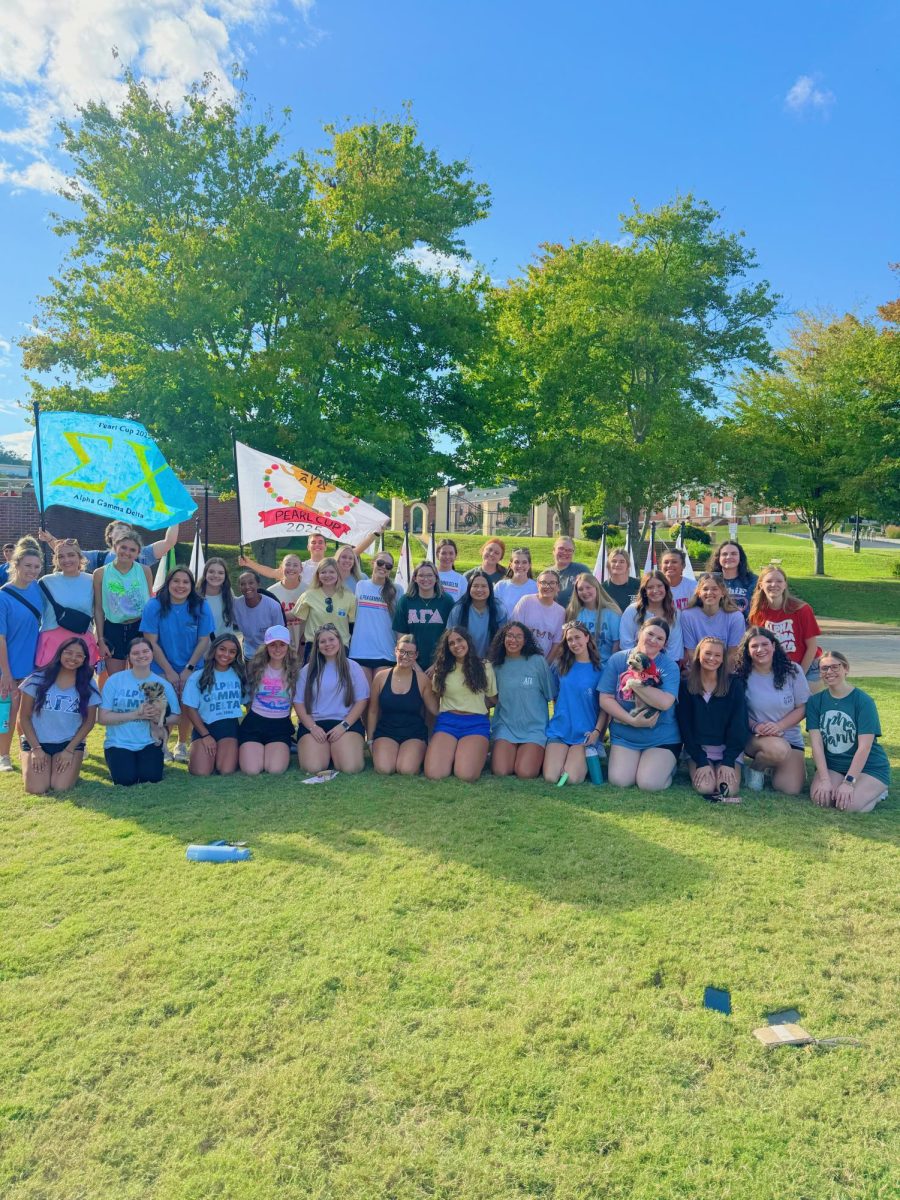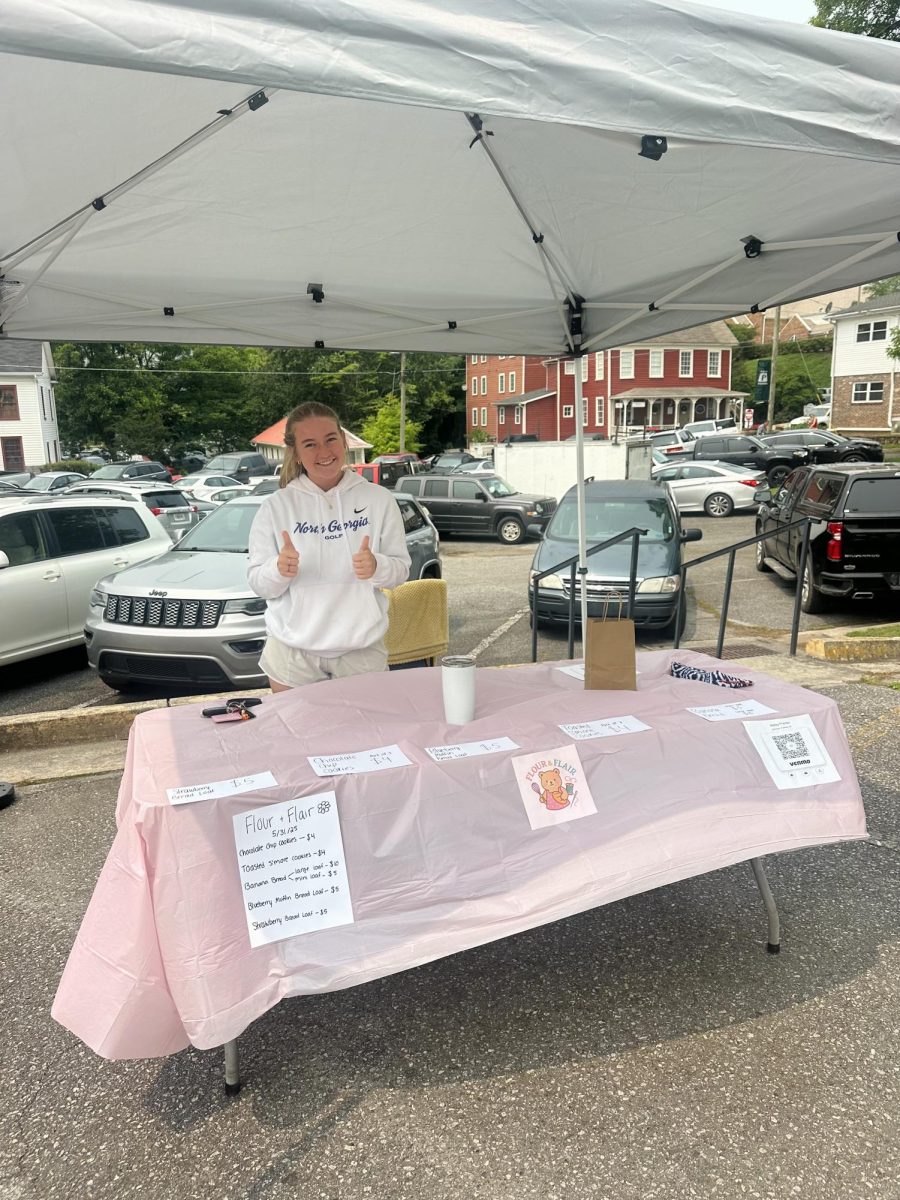For many people, Twitter is a great social media site to get informed about the news in real time, talk to other people about the news, or maybe both. One public figure to have used Twitter to their advantage is former President Donald Trump. Trump has gained a following online, especially from his online supporters, who are some of the most vocal about him and his policies. Trump would send tweets in a rhetoric not seen from any other politician. However, on January 8, many social media sites have had enough of the president, and started banning or temporarily suspending Trump from using their platform, starting with Twitter, and included sites like Facebook, Instagram, Discord, and Twitch among others.
Many people were surprised to see Trump suspended, including freshman Michael Braun. Braun, a computer science major, regularly uses sites like Twitter, and had followed Trump before his suspension. “I knew that Twitter didn’t like Trump, and I thought they were going to kick him off once he was out of office,” said Braun.
“I didn’t think they would (suspend him) with only two weeks before he had to leave office.”- Michael Braun
The timing of Trump’s suspension makes it even more shocking. Braun notes that while he’s been on Twitter, many regular users seem to get punished more often than verified users like Trump for saying similar, if not worse things. Many users like Trump were able to get away with it since Twitter holds their verified users with high self-regard. Trump’s ability to tweet would start to be limited following the 2020 election, when he spread misinformation about the election, and claimed he had won the election despite losing handily to Democratic nominee Joe Biden.
For the first time, Twitter started to flag Trump’s tweets, stating that Trump’s claim of election fraud is false, and this is true considering that out of Trump’s 50 court cases, only one ruled in his favor. Following the insurrection at the Capitol on January 6, Twitter decided they had enough. Grey Nebel, a junior who double majors in English and French, also uses sites like Twitter and had followed Trump. Nebel said, “I saw that several of Trump’s tweets got flagged, got deleted…and then he got banned for 12 hours. I thought it was going to end there.” It did not, and a domino effect occurred, where Trump was not able to use his personal accounts on many major social media sites.
According to Twitter, their reasoning on Trump’s suspension was on two tweets he sent out, continuing his claim about the fraudulent election and that there would not be an “orderly transition” on the 20th, as well as his using the phrase “American Patriots” to describe his supporters, some of which turned violent and stormed Capitol Hill on the 6th. Twitter interpreted his support of the events as further breaches of the terms of service, fearing they would lead to further violence if something is not done. Twitter took action to suspend Trump to make sure that no future events would be supported by Trump online.
According to a PBS poll, only 8% of Americans supported the insurrection, but interestingly, 39% of people opposed Trump’s suspension from Twitter according to a Harris Poll. The suspension has caused an outcry from conservative users online, claiming that Trumps’s suspension is the start of the censorship of conservative users from social media sites. This claim is false however, as many conservative groups, such as Turning Point USA and PragerU are still up and running on these sites since they haven’t violated Twitter’s Terms and Conditions. As Nebel points out, “Social media is a business…they are going to let people who aren’t inciting violence on their platform. They are going to let them post and tweet how and what they want.”
As social media sites like Parler have shown, having absolute free speech with no regulation will lead to the violent users and illegal content overshadowing the users who do nothing a large majority of the time, hence its shut down. Yet, Twitter cannot continue to mass silence regular users who get banned for no apparent reason. As both Braun and Nebel have stated that their friends do get suspended from Twitter for no reason, more than likely due to association with the political content they follow and react to. A verified user on Twitter gets a slap on the wrist if they say something that incites violence and hate, but yet a regular user could get suspended for saying a joke that someone did not like.
What solution is there to regulating what content and users people can follow on social media? Both Braun and Nebel agree that at the most, sites like Twitter should have a standard how to apply their terms and conditions to anyone that breaks them, even if they are verified and hold a position of power like Trump. While this solution is the most immediate, to some it is not desirable long-term since it still gives major powers to large corporations to control what they deem “appropriate” for their site.
One solution that could be implemented is to extend First Amendment rights to social media. This is not a new topic as in 2017, the U.S. Supreme Court ruled in Packingham v. North Carolina that social media platforms are the new “public square”, and that the First Amendment allows access to social media to be protected. The reasoning to the extension is that social media has become the new place for the exchange of information and ideas. So if this extension was passed, users would have protection to post their views onto social media. Just like with real life however, there could be a rule that even if you have free speech, that does not mean there will not be any consequences to what you say or post.
The topic of internet censorship and how to solve it is not a black or white issue, as many people have different solutions on how internet censorship could be looked at in the future. The issue of internet censorship is a topic that is not easy to look at quickly, as many individual court cases could be brought up to the Supreme Court on how internet censorship could work. Trump’s suspension has started the mass domino effect on how private companies should handle and apply free speech.









